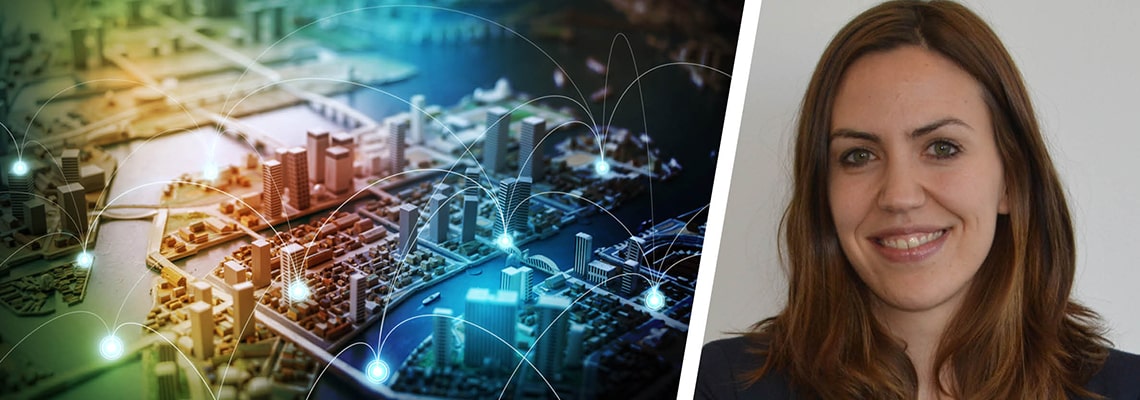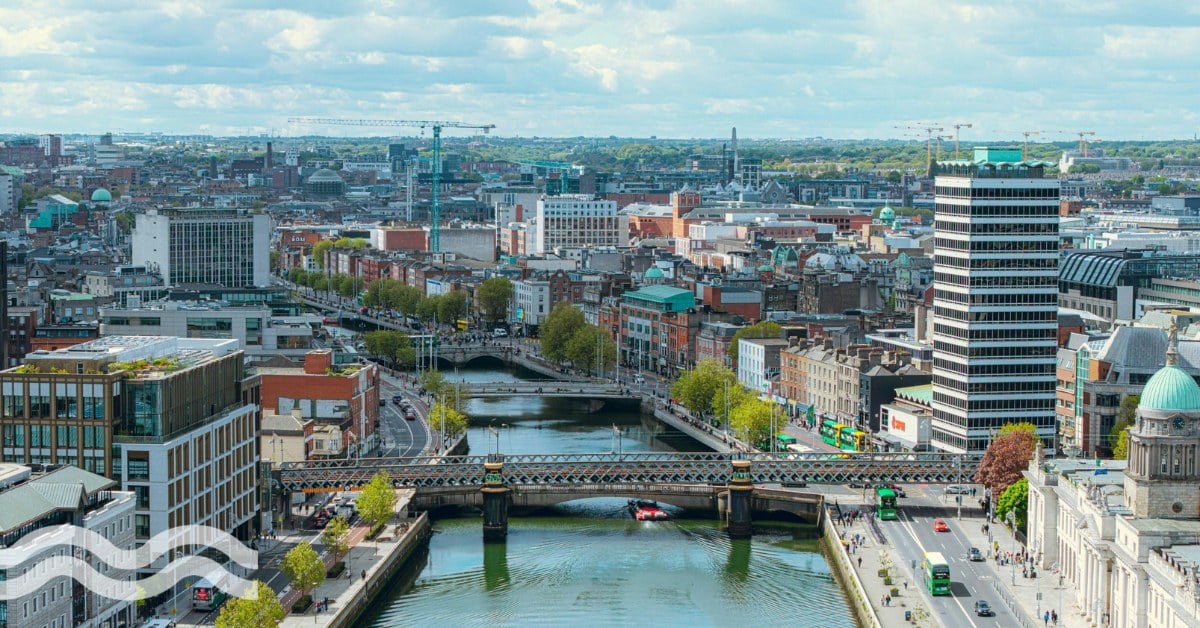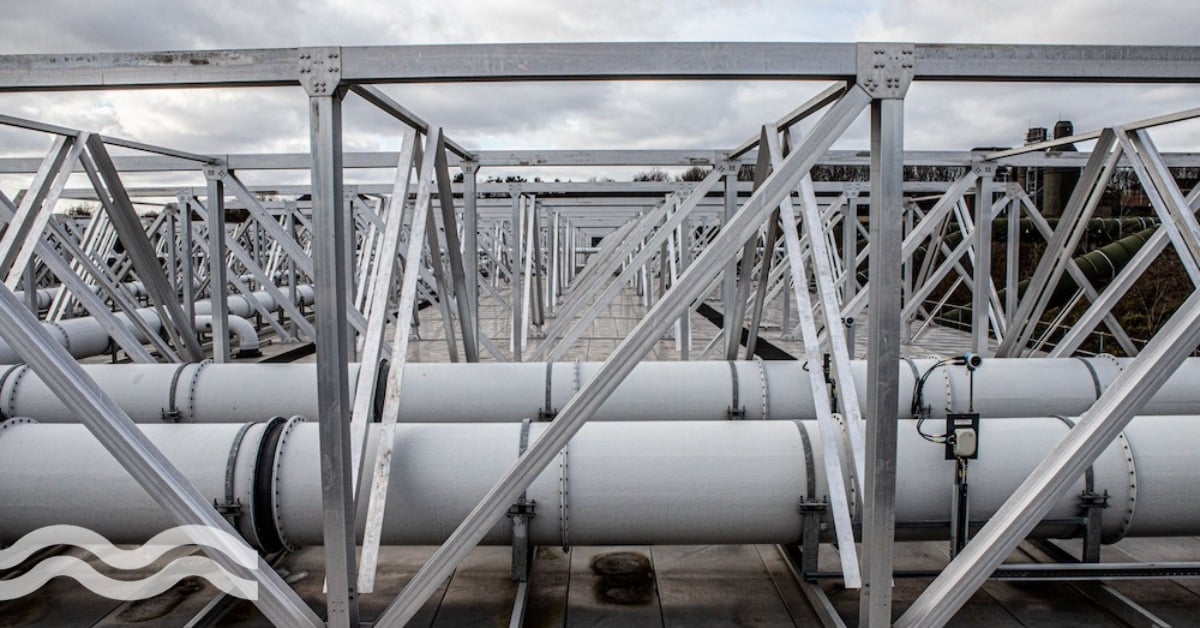Eva Martinez Diaz: It’s fate that I landed in digital

Embracing a digital water city
The writing was on the wall early in Eva Martinez Diaz’s career that she would eventually land a role in the digital space.
After graduating as an agricultural engineering from the Polytechnic University of Valencia (Spain), she went on to gain a BSc (Hons) in Environment Sciences at Coventry University (UK) and MSc in Integrated Environmental Management at Nottingham Trent University (UK).
"Water utilities are supplying not only water but a holistic water service, avoiding pollution, reusing water and providing nutrients for further use.”
It was during a new role at IBM that she saw it as “signal from the fate of a future digital role”. She was tasked with helping to implement new software in Spain then abroad at different European branches.
After two years in Germany at Ttz Bremerhaven where she coordinated several environmental research projects, Martinez made her way back to her home nation of Spain. Leading and conducting business with public and private entities in the field of water management, information technologies, environment and sustainability, she started working for aqualia.
Today she is the smart services manager at the innovation and technology department. Below is a sample of an interview conducted with Aquatech Global Events.
When did you first come across ‘smart water’?
Eva Martinez Diaz, smart services manager at the innovation and technology department, Aqualia (EM):During the early stages with aqualia I was working in the Smart City of Santander (Spain) being one of the pioneers of implementing a Smart Water project in smart cities. It was clear the potential of combining innovation and digital technologies, and so my position was created. I am responsible for the Smart Services, taking part in the assessment of state of the art of smart technologies, implementing, evaluating and optimizing them within the integral water cycle through international R&D projects.
You’re involved in the Digital Water City, H2020 initiative. How would you describe a Digital Water City?
EM: It is my pleasure to be part of the Expert Advisory Board of the H2020 Digital Water City, together with representatives from IBM, SIEMENS; EurEau, IWA, Centre for Research into Environment and Health and Franhoufer Institute.
This board, and the DWC consortium, represents to a large extent the different elements of a Digital Water City, including research centres, utilities, solution providers, open associations comprising all relevant stakeholders from both the private and public sector, and the voice of the citizens.
The concept of digital water city entails improving every part of the water cycle through the use of technology, data and intelligence. It constitutes the digital framework needed towards the main objective: a smart water ecosystem that is carbon free and sustainable. The ambition is to ensure water quality and reduce freshwater and energy use, in line with the concept of a resilient circular economy and involving all relevant stakeholders, increasing awareness on the true value of water.
The link to a circular economy, including energy and sustainability, is very on point. What are the ambitions for this project?
EM: The project is very ambitious, creating linkages between the digital and the physical world demonstrating advanced digital solutions for different purposes. The case studies include to optimise investments and operational costs, improve infrastructure performance, reduce flooding, achieve safe water reuse for agricultural irrigation, improve bathing water quality and foster public involvement, to name a few.
Moreover, the solutions are implemented at five cities at large scale allowing the assessment of the digital solutions, opening new markets for technology providers.
That is highly ambitious, including multiple stakeholders. Can you name the five cities involved?
EM: Berlin, Paris, Sofia, Copenhagen and Milan.
Impressive line-up. More widely speaking, which successful projects really stand out to you when it comes to digitalisation and why?
EM: I am driven myself to those projects that entail a real change on the business as usual, either because they are riskier and this implies a commitment and engagement with operators and stakeholders to be successful, or because they create added value and new markets.
As an example, one of the projects I am directly involved in and coordinated by Aqualia is the H2020 Run4Life project. In Run4Life the idea is to not depend on large infrastructure but instead rely on decentralized water services. This is based on source-separated collection of domestic wastewaters and kitchen waste, catering for the needs of water treatment of local communities and neighbourhoods, with each flow receiving optimal treatment for resource recovery and subsequent safe reuse.
For that, it is essential to monitor and control inflows and outflows of many plants and treatments in a centralized way, facilitating decision making and operation, predicting possible adverse events, reducing risks and ensuring human health.
The Run4Life concept aligns very well with the idea of utilities being technology providers, able to control, monitor and automate the water treatment as well as service providers. We are supplying not only water but a holistic water service, avoiding pollution, reusing water and providing nutrients for further use.
What continues to be the biggest hurdles to water utility adoption of digital solutions?
EM: Water is a local issue, and so the business case or return on investment on the deployment of a digital solution has to be analysed at each location. Having said that, I believe in this analysis it is important to think of total expenditure rather than only capex (capitals costs) or Opex (operational costs), plus take into account environmental and risk factors.
There are other matters preventing a massive deployment and adoption of digital solutions, such as the maturity of the technologies, the lack of standards, cybersecurity and data privacy issues. Last but not least, one of the biggest barriers can be the internal adoptions of new ways of working within the culture of a company.
You’re on the Advisory Board for the upcoming Innovation Forum and also chairing the session: Digital water: developments, disruption & risk. What are you most looking forward to at the event?
EM: From the beginning this innovation forum has been conceived as being highly interactive, engaging and practical. This creates a great environment to learn and exchange ideas, share and discuss approaches. My session gathers different perspectives on digital water implementation from public and private utilities and solution providers from Spain, UK and Germany. I have a top-level session with people willing to change traditional methodologies, adopt new approaches and take risks…an inspiring debate is guaranteed!
- Eva Martinez Diaz will be among 40 of the water sector’s top speakers and thought leaders taking part in the first Aquatech Innovation Forum on November 4, with the tagline: Mastering Water’s Digital Transformation. More information can be found here: https://www.aquatechtrade.com/innovation-forum/


